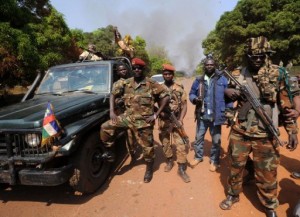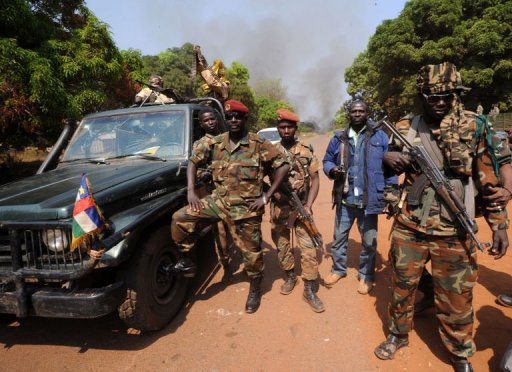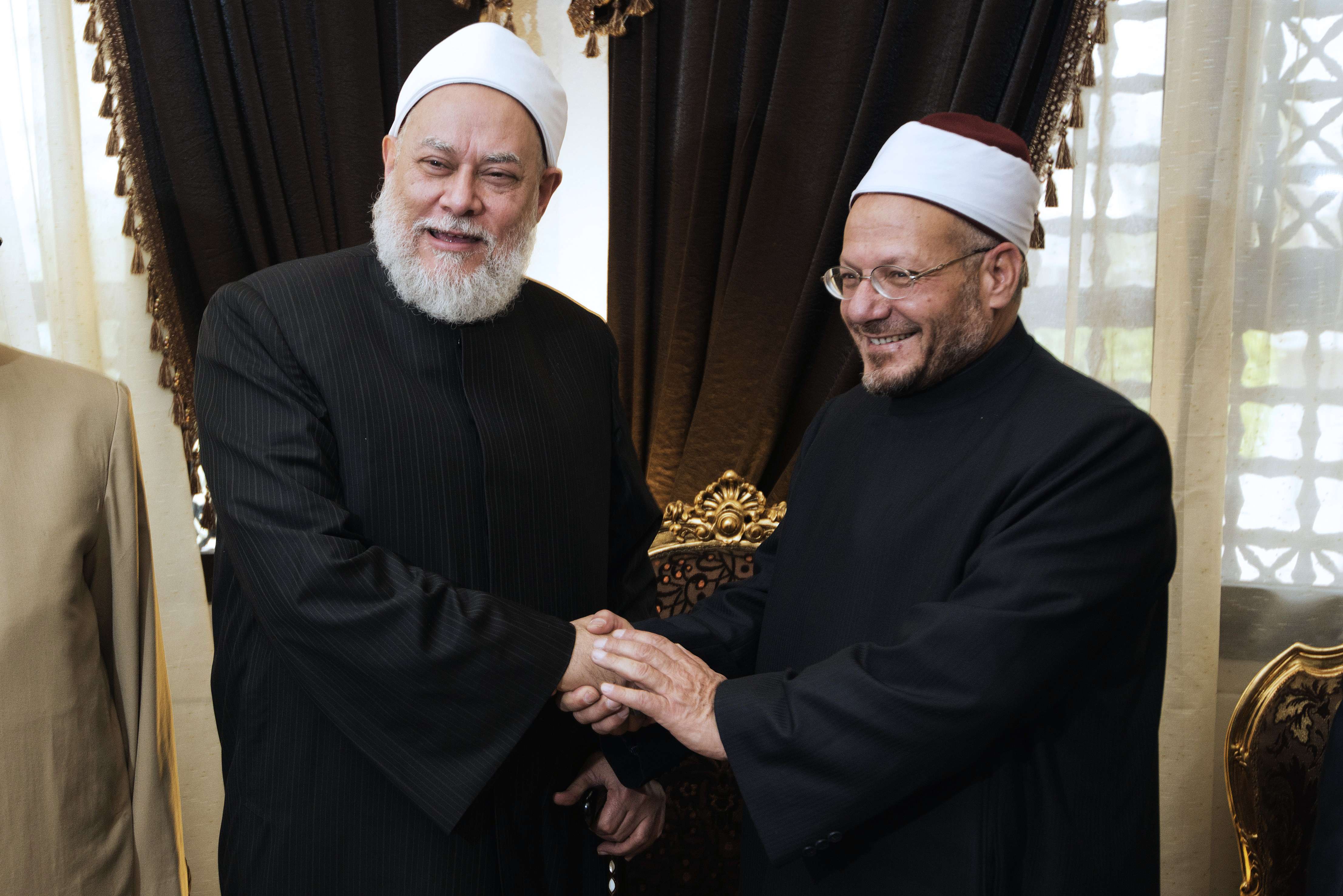
By Christian PANIKA (AFP)
BANGUI — Rebels in the Central African Republic said they had advanced into the capital Bangui, ignoring a call by the country’s prime minister for talks to avoid a “bloodbath”.
“We call on the population to stay at home, on the FACA (Central African Armed Forces) not to fight, and on President (Francois) Bozize to leave,” Paris-based rebel spokesman Eric Massi said Saturday.
Fighters from the Seleka rebel coalition have this week pushed their way to the gates of Bangui after the collapse of a two-month-old peace deal.
On Saturday, they said they had moved past the PK 12 checkpoint that effectively marks the entrance to the city.
A Central African military source who asked to remain anonymous denied the claim.
But Bangui resident Francis Komgdo, who lives near the PK 12 checkpoint, told AFP the rebels had arrived in the district, some in vehicles others on motorbikes, occasionally firing in the air.
Truck driver Donatus Bion reported seeing rebels on the outskirts of the capital, adding that they had not been violent.
“They told us to stay calm and that they would not be attacking us,” he said.
Massi said the rebel leadership was urging its forces on the ground to refrain from “looting or score-settling with the local population”.
A source with the FOMAC, the multinational African force in the country, told AFP that South African troops were guarding the key checkpoint.
But the source added: “According to our information, the rebels got men into the capital on foot, but they have not got through with vehicles because of the presence of the South African force.”
FOMAC’s commander Gabonese General Jean Felix Akaga reported explosions on the outskirts of the capital.
At the sound of gunfire, the streets emptied as local people fled to their homes. Virtually the only traffic was military vehicles patrolling the main highways.
The city was plunged into darkness after rebels sabotaged a hydroelectric power plant in Boali, north of the capital, an official with the Enerca electricity company and residents said.
Earlier Saturday, a spokesman for Prime Minister Nicolas Tiangaye called on the rebels to accept talks to “avoid a bloodbath”.
Tiangaye, an opposition figure, was only appointed as part of the peace deal brokered between the government and the rebels in January, an agreement that broke down earlier this week.
Bozize has not issued any statement.
Djouma Narkoyo, a rebel military chief, told AFP by telephone: “If the heads of state of the Economic Community of Central African States request it, we are ready to meet them and talk, but not to negotiate with General Bozize.”
If the rebel coalition captured Bangui, he added, it would set up a new government.
Narkoyo has previously called on South African troops — deployed at Bozize’s request after Seleka’s lightning advance in December — to leave.
Former colonial power France has called for an emergency meeting of the UN Security Council to discuss the deteriorating situation, said Romain Nadal, a spokesman for the president’s office.
France had not issued an evacuation order, but the estimated 1,250 French nationals in the country were advised to stay at home, said Nadal.
There were no immediate plans to send reinforcements to back up the 250 French troops in the country to protect them, he added.
Seleka, an alliance of three rebel movements, first launched its offensive in the north of the country on December 10, accusing Bozize of not abiding by the terms of previous peace agreements.
Facing little resistance from an ill-trained and ill-equipped army, they seized a string of towns, defying UN calls to stop before halting within striking distance of Bangui.
They reached a peace deal with the government in January under which Tiangaye became head of a national unity government that was to carry out reforms before national elections next year.
But that deal collapsed this month after the rebels said their demands, which included the release of people they described as political prisoners, had not been met.
The international community has nervously watched the spike in tensions in the landlocked nation of 4.4 million people where Bozize himself seized power in a 2003 coup.
The country has been plagued by instability since its independence from France in 1960.


